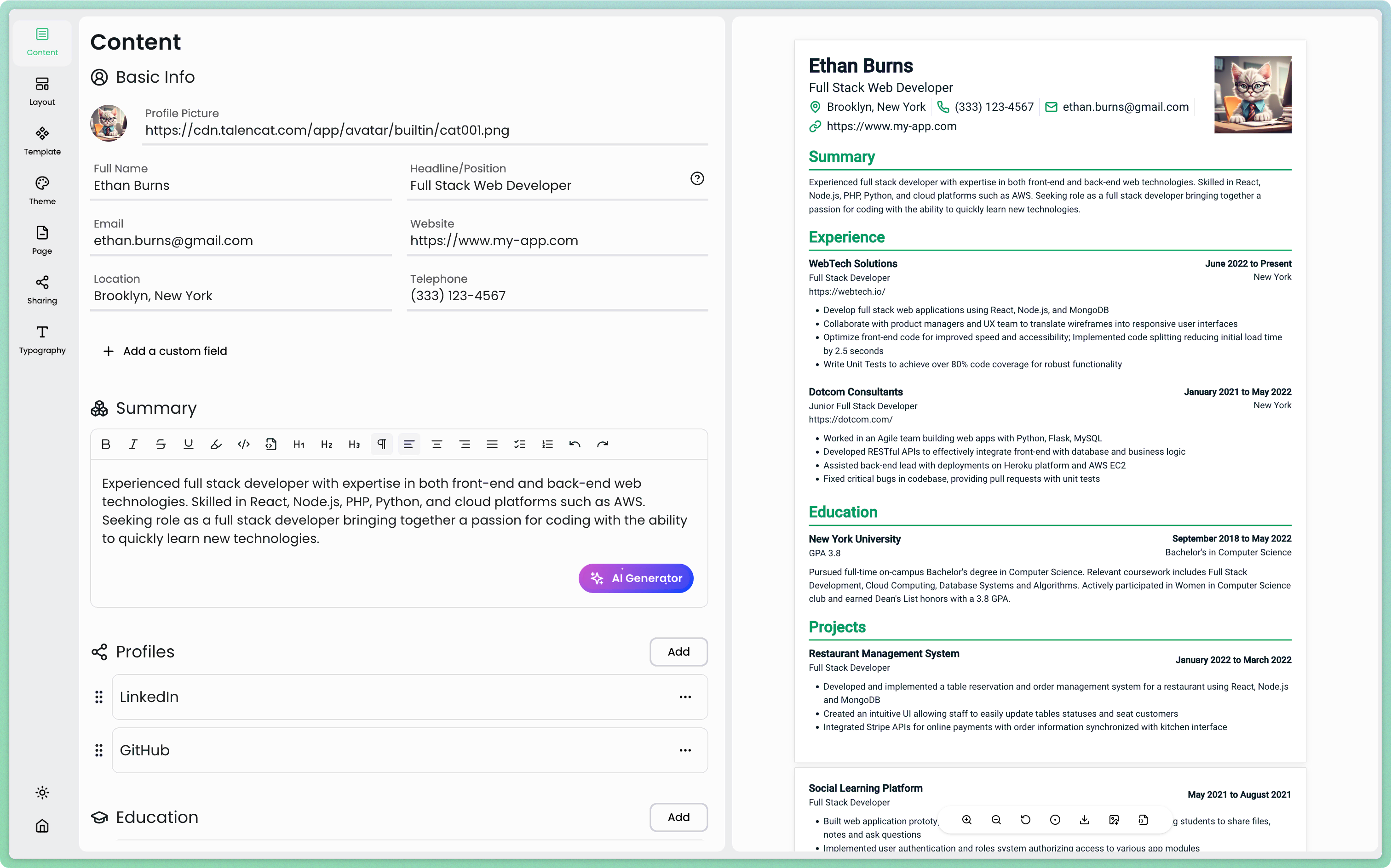Embarking on a career as a preschool teacher is both rewarding and challenging. This comprehensive guide will explore the various aspects of this profession, providing valuable insights for those considering a career in early childhood education. From understanding the role and responsibilities to navigating the job market and advancing your career, this article covers everything you need to know about becoming a preschool teacher.
Also Read:


Overview of Preschool Teacher Jobs
Preschool teachers play a crucial role in shaping the early educational experiences of young children. They are responsible for nurturing the cognitive, social, and emotional development of children during their formative years.
Definition of Preschool Teachers
Preschool teachers are educators who work with children typically between the ages of 3 and 5, before they enter kindergarten. These professionals are tasked with introducing young learners to basic concepts and skills that will prepare them for formal schooling.
Importance of Preschool Education
Early childhood education is vital for a child's overall development. Research has shown that high-quality preschool programs can have long-lasting positive effects on a child's academic and social outcomes. Preschool teachers contribute significantly to this by:
- Fostering a love for learning
- Developing essential social skills
- Building a foundation for future academic success
- Identifying and addressing developmental delays early
Target Age Group
While preschool typically caters to children aged 3 to 5, some programs may include younger children, starting from as early as 2 years old. The specific age range can vary depending on the program and local regulations.

Job Responsibilities of a Preschool Teacher
Preschool teachers have a diverse set of responsibilities that go beyond simply watching over children. Their role encompasses various aspects of early childhood education and care.
Curriculum Development
One of the primary responsibilities of a preschool teacher is to develop and implement age-appropriate curricula. This involves:
- Creating lesson plans that align with early learning standards
- Designing activities that promote cognitive, social, and emotional development
- Incorporating play-based learning experiences
- Adapting curriculum to meet individual student needs
Teaching and Instruction
Preschool teachers are responsible for delivering instruction in various subject areas, including:
- Early literacy and language development
- Basic mathematics concepts
- Science and nature exploration
- Art and creativity
- Physical education and motor skills development
Instruction at this level often involves hands-on activities, songs, games, and storytelling to engage young learners effectively.
Assessment and Evaluation
Regular assessment of children's progress is crucial in early childhood education. Preschool teachers must:
- Observe and document children's development
- Use age-appropriate assessment tools
- Identify areas where children may need additional support
- Communicate progress to parents and guardians
Classroom Management
Maintaining a safe, organized, and nurturing classroom environment is essential. This includes:
- Establishing and enforcing classroom rules and routines
- Managing behavior and resolving conflicts
- Ensuring the physical safety of children
- Creating an inclusive and welcoming atmosphere for all students
Communication with Parents and Guardians
Preschool teachers serve as a vital link between the school and home. They must:
- Regularly update parents on their child's progress
- Discuss any concerns or developmental issues
- Provide guidance on supporting learning at home
- Conduct parent-teacher conferences
Qualifications and Skills Required
Becoming a preschool teacher requires a combination of formal education, certifications, and essential skills.
Educational Requirements
The educational requirements for preschool teachers can vary depending on the state and type of program. However, most positions require at least some postsecondary education.
Degree in Early Childhood Education
Many preschool teaching positions require a bachelor's degree in early childhood education or a related field. Some key areas of study include:
- Child development
- Educational psychology
- Curriculum and instruction for young children
- Health and safety in early childhood settings
Some positions may accept an associate's degree, particularly in private settings or daycare centers.
Certifications and Licenses
In addition to a degree, preschool teachers often need to obtain specific certifications or licenses:
- State teaching license or certification (requirements vary by state)
- Child Development Associate (CDA) credential
- First aid and CPR certification
Essential Skills
Successful preschool teachers possess a unique set of skills that enable them to work effectively with young children.
Communication Skills
Strong communication skills are crucial for preschool teachers. They must be able to:
- Explain concepts in simple, age-appropriate language
- Listen actively to children's needs and concerns
- Communicate effectively with parents and colleagues
- Use non-verbal communication to connect with young learners
Patience and Compassion
Working with young children requires an abundance of patience and compassion. Preschool teachers should:
- Remain calm in challenging situations
- Show empathy towards children's emotions and experiences
- Provide consistent and nurturing support
Creativity and Flexibility
Preschool teachers need to be creative and adaptable in their approach to teaching. This involves:
- Developing engaging and innovative learning activities
- Adapting lessons to suit different learning styles
- Thinking on their feet to address unexpected situations
Organizational Skills
Managing a classroom of young children requires excellent organizational skills, including:
- Planning and preparing lessons in advance
- Maintaining a structured daily routine
- Keeping accurate records of student progress and activities
- Managing time effectively to balance various responsibilities
Job Market and Employment Opportunities
The job market for preschool teachers offers various opportunities across different settings and locations.
Current Job Statistics
According to the U.S. Bureau of Labor Statistics, the employment of preschool teachers is projected to grow 15% from 2021 to 2031, which is much faster than the average for all occupations. This growth is driven by:
- Increasing emphasis on early childhood education
- Growing population of children aged 3 to 5
- Rising demand for childcare services
As of May 2021, the median annual wage for preschool teachers was $30,210, with the highest 10 percent earning more than $58,530.
Job Availability by Location
Job opportunities for preschool teachers can vary significantly by location. Here are insights into two specific areas:
Preschool Teacher Jobs in Fremont, CA
Fremont, California, located in the San Francisco Bay Area, offers numerous opportunities for preschool teachers due to its growing population and emphasis on education. Some key points include:
- Higher than average salaries due to the high cost of living in the area
- Opportunities in both public and private preschool settings
- Strong demand due to the presence of many young families in the tech industry
Preschool Teacher Jobs in Plano, TX
Plano, Texas, a suburb of Dallas, also presents a favorable job market for preschool teachers:
- Growing population and expanding suburbs create demand for early childhood education
- Mix of public school district preschool programs and private centers
- Competitive salaries compared to the national average, with a lower cost of living than many major cities
Types of Employers
Preschool teachers can find employment in various settings, each with its own unique characteristics and requirements.
Public Schools
Many school districts offer public preschool programs, which typically:
- Require state teaching certification
- Offer better benefits and job security
- Follow state-mandated curriculum standards
Private Institutions
Private preschools and early learning centers may:
- Have more flexibility in curriculum and teaching methods
- Offer specialized programs (e.g., Montessori, Waldorf)
- Sometimes require additional certifications or training
Daycare Centers
Daycare centers that offer preschool programs:
- May have more flexible educational requirements for teachers
- Often combine childcare with educational components
- Can provide opportunities for entry-level positions
Crafting the Perfect Preschool Teacher Resume with TalenCat CV Maker
As a preschool teacher, your resume is your first opportunity to showcase your skills and passion for early childhood education. TalenCat CV Maker offers an intuitive platform to create a standout resume that highlights your qualifications and experience in working with young children. Follow this step-by-step guide to build a professional preschool teacher resume that will catch the eye of potential employers.
Step 1: Begin by logging into TalenCat CV Maker and clicking the "+ Create Resume" button in the top right corner to start your new preschool teacher resume.

Step 2: Give your resume a name that reflects your profession, such as "Preschool Teacher Resume," and choose whether to start from scratch or use a pre-made example tailored for education professionals.

Step 3: Once in the editor, you'll see a split-screen view. On the left, input your information in the various sections. As you type, watch your resume take shape in real-time on the right panel. This feature allows you to craft the perfect layout for showcasing your early childhood education expertise.

Step 4: Utilize TalenCat's AI-powered features to enhance your resume. The platform can suggest skills relevant to preschool teaching, help you phrase your experiences effectively, and even generate tailored bullet points for your work history.

Once you've completed your preschool teacher resume, you can easily export it as a PDF or image file. TalenCat CV Maker also offers an online sharing option, allowing you to generate a link to your resume for easy distribution to potential employers or school administrators.
Remember to highlight your certifications in early childhood education, your experience in curriculum development, and your ability to create a nurturing learning environment for young children. With TalenCat CV Maker, you'll have a professional, polished resume that sets you apart in the competitive field of early childhood education.
How to Apply for Preschool Teacher Jobs
Writing a Strong Resume
A well-crafted resume is essential for standing out in the job market. When creating your resume:
- Highlight relevant education and certifications
- Emphasize experience working with young children
- Showcase specific skills related to early childhood education
- Include any relevant volunteer work or internships
Crafting a Cover Letter
Your cover letter should complement your resume and provide insight into your passion for early childhood education. Be sure to:
- Explain why you're interested in the specific position and organization
- Highlight your most relevant qualifications and experiences
- Demonstrate your understanding of early childhood development
- Show enthusiasm for working with young children
Preparing for Interviews
Interviews for preschool teaching positions often include both traditional questions and scenarios specific to working with young children. To prepare:
- Research the school or center's philosophy and approach to early education
- Be ready to discuss your teaching style and classroom management strategies
- Prepare examples of how you've handled challenging situations with children
- Consider bringing a portfolio showcasing lesson plans or activities you've developed
Utilizing Job Boards and Resources
There are numerous resources available to help you find preschool teaching positions.
Indeed and Other Job Platforms
Online job boards like Indeed, ZipRecruiter, and Education Week's TopSchoolJobs can be valuable resources. When using these platforms:
- Set up job alerts for preschool teacher positions in your desired location
- Tailor your resume and application to each specific job posting
- Follow up on applications through the platform's messaging system
Networking Opportunities
Networking can be a powerful tool in finding preschool teaching positions:
- Attend education job fairs and conferences
- Join professional organizations like the National Association for the Education of Young Children (NAEYC)
- Connect with alumni from your education program
- Volunteer or substitute teach to make connections in local schools and centers
Challenges Faced by Preschool Teachers
While rewarding, the role of a preschool teacher comes with its own set of challenges that professionals must navigate.
Dealing with Behavioral Issues
Young children are still learning to regulate their emotions and behaviors, which can lead to challenging situations in the classroom. Preschool teachers must:
- Implement effective behavior management strategies
- Address individual behavioral needs while maintaining a positive classroom environment
- Work with parents and specialists to support children with persistent behavioral issues
Workload and Stress Management
The demands of teaching young children can be physically and emotionally taxing. Preschool teachers often face:
- Long hours, including preparation time outside of classroom hours
- High-energy environments that require constant attention and engagement
- The need to balance individual attention with group management
To manage stress, teachers should:
- Develop strong time-management skills
- Practice self-care and maintain a healthy work-life balance
- Seek support from colleagues and administrators
Balancing Education and Care Responsibilities
Preschool teachers must strike a balance between providing educational experiences and meeting the basic care needs of young children. This involves:
- Integrating learning opportunities into routine care activities
- Adapting to the varying developmental levels within the classroom
- Ensuring children's physical and emotional needs are met while focusing on educational goals
Career Advancement Opportunities
A career in preschool teaching can lead to various advancement opportunities within the field of early childhood education.
Continuing Education and Professional Development
Ongoing learning is crucial for career growth in early childhood education. Preschool teachers can:
- Pursue advanced degrees, such as a master's in early childhood education
- Attend workshops and conferences to stay current with best practices
- Obtain additional certifications in specialized areas (e.g., special education, bilingual education)
Potential Career Paths
As preschool teachers gain experience and additional qualifications, they may advance to roles such as:
Lead Preschool Teacher
Lead teachers typically have more responsibilities, including:
- Mentoring new teachers
- Coordinating curriculum across multiple classrooms
- Taking on administrative duties
Curriculum Specialist
Curriculum specialists focus on developing and implementing educational programs. They may:
- Design curriculum frameworks for preschool programs
- Train other teachers in curriculum implementation
- Evaluate and select educational materials and resources
Early Childhood Program Director
Program directors oversee the operations of preschools or childcare centers. Their responsibilities include:
- Managing staff and budgets
- Ensuring compliance with regulations and standards
- Developing and implementing program policies
- Communicating with families and the community
Conclusion
Summary of Key Points
Becoming a preschool teacher offers a fulfilling career path for those passionate about early childhood education. Key takeaways from this guide include:
- The critical role preschool teachers play in children's development
- The diverse responsibilities involved in teaching young children
- The qualifications and skills needed to succeed in this field
- The growing job market and various employment settings available
- Strategies for finding and securing preschool teaching positions
- The challenges and rewards of working with young children
- Opportunities for career growth and advancement
Encouragement for Prospective Preschool Teachers
For those considering a career as a preschool teacher, remember that your work can have a lasting impact on the lives of young children. While the job comes with its challenges, the opportunity to shape young minds and contribute to their future success is incredibly rewarding. With dedication, patience, and a love for learning, you can build a meaningful career in early childhood education that makes a difference in your community and beyond.




